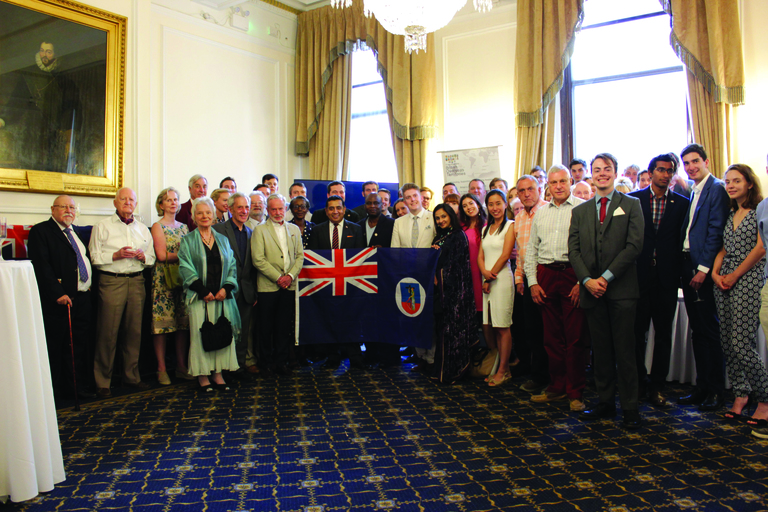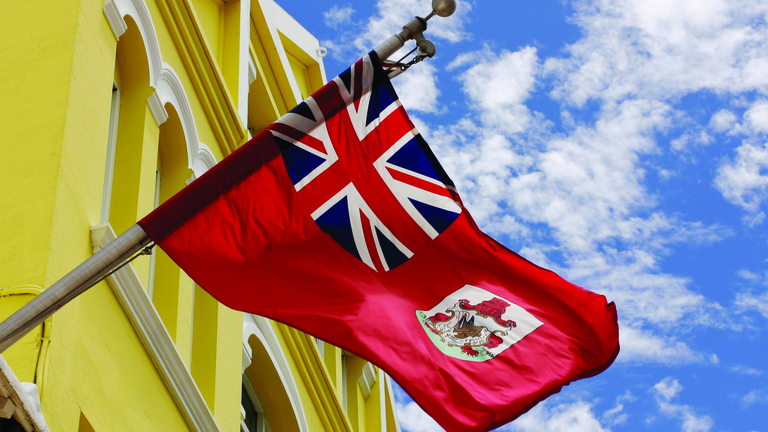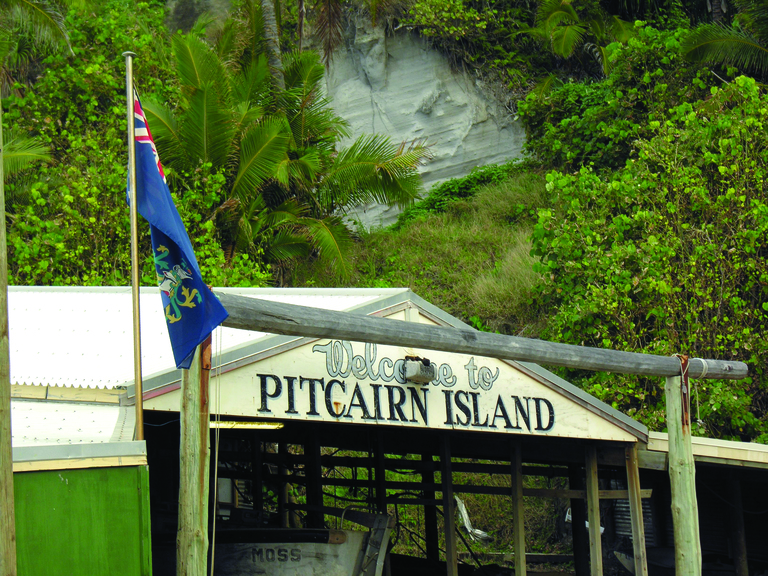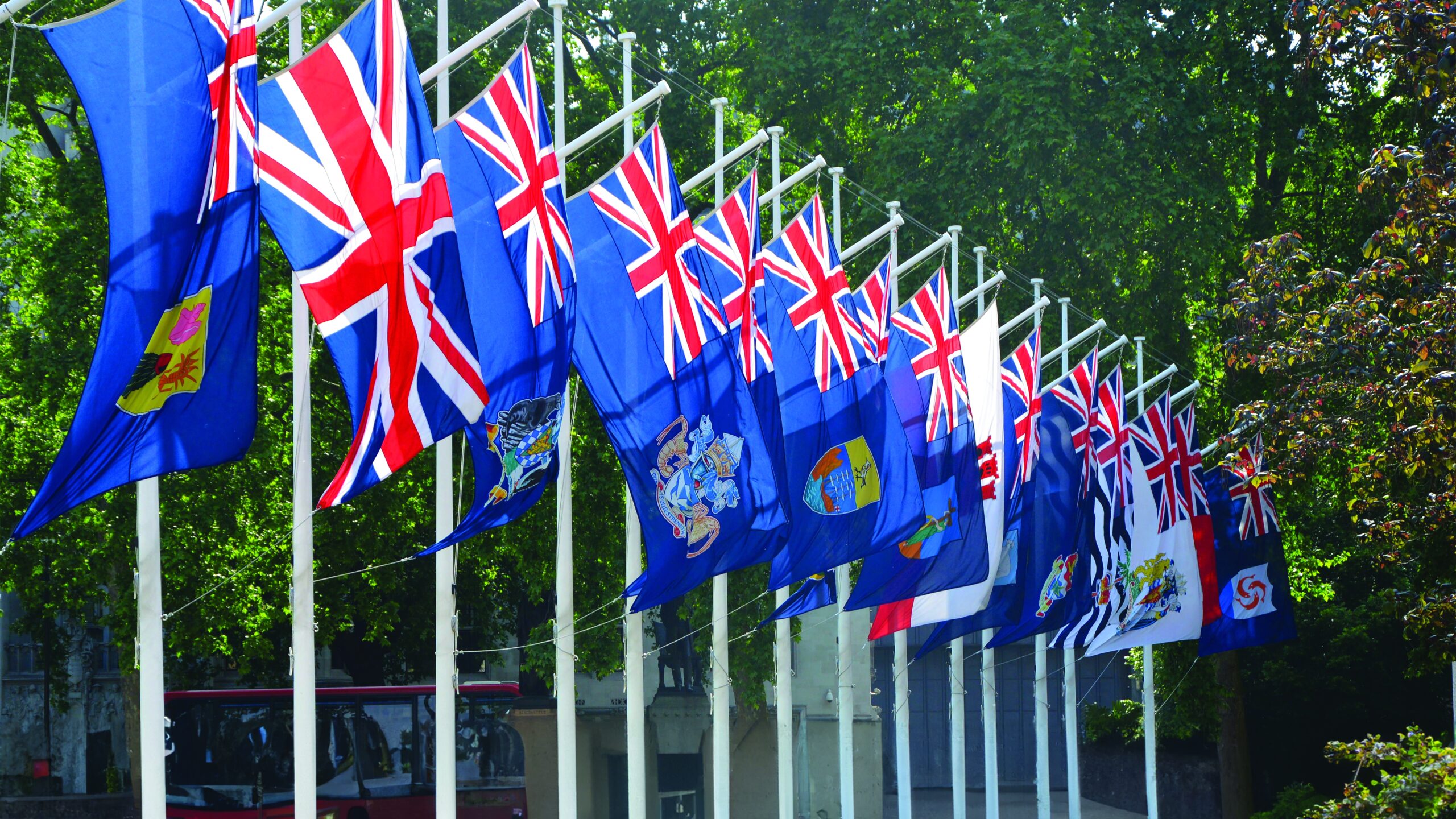For many, the passing of Hong Kong to Chinese rule in 1997 marked the definitive end of the British Empire upon which the sun never set. However, in this Coronation Year, there remain 14 remnants of an empire which at its height a century ago was the foremost global power. These small islands and areas have been known since 2002 as the British Overseas Territories (BOTs), and while they are not part of the United Kingdom, they have constitutional and historical links with Britain and form one realm under King Charles III, along with the UK and its Crown Dependencies (Jersey, Guernsey, and the Isle of Man).
The tiny territories are spread around the globe with a total population of about 260,000. Though small in both size and population, some play a huge role in the global economy or have geopolitical or military significance far beyond their geographic area. The 14 comprise Anguilla; Bermuda; British Antarctic Territory; British Indian Ocean Territory; British Virgin Islands; Cayman Islands; Falkland Islands; Gibraltar; Montserrat; Pitcairn, Henderson, Ducie and Oeno Islands; Saint Helena, Ascension and Tristan da Cunha; South Georgia and the South Sandwich Islands; Turks and Caicos Islands; and UK Sovereign Base Areas.

Sovereignty Secured
Since giving Brunei independence in 1984 and signing the agreement to hand over Hong Kong in the same year, Britain has not conceded any further territory overseas. Nevertheless, the sovereignty of some BOTs is disputed by neighbouring countries. Most notably, the UK has agreed to enter negotiations with Mauritius over the future of the Chagos Archipelago that comprises the British Indian Ocean Territory, home to the strategically vital island of Diego Garcia. Two other territories reaffirmed their British status by overwhelming margins in local referendums – Gibraltar in 1967 and 2002, and the Falklands in 2013.
There is no one reason why territories choose to retain UK sovereignty. “St Helena and Montserrat don’t have viable economies and could not survive without the large amounts of UK aid they receive,” says Craig Brewin, an inclusive development consultant and former director of the Montserrat Red Cross. Brewin serves as Head of Research for Friends of the British Overseas Territories, an organisation that raises awareness within the UK of the BOTs.
One great advantage of the BOTs is their natural beauty. “They are all beautiful, with incredible biodiversity, unique cultures and their own histories,” notes Brewin. “The weather is predictably warm in most cases. Some are easier to get to than others, some are very expensive to visit, but there is something for everyone. Anguilla is known for its high-end facilities, and Montserrat for its villas.”
A recent communique by the Red Ensign Group, the shipping registry for the UK, BOTs and Crown Dependencies, affirms that each member takes its responsibilities to protect its land and beautiful coastlines very seriously.

Bullish Bermuda
In the wealthy territory of Bermuda, murmurings about becoming an independent nation began in the 1960s. However, the notion was rejected by a 1995 referendum, in a nod to the perceived benefits of continued UK association, particularly the protection and stability that this offers. “Despite their wealth, they are still small in population and there is a commercial risk associated with becoming completely independent,” says Brewin.
Boasting the third-highest GDP per capita in the world, Bermuda has carved a niche for itself as a reinsurance hub. S&P Global Ratings noted recently that Bermuda had become the domicile of choice for global reinsurance startups, offering advantages such as adaptable legislation and regulation, tax efficiency, established infrastructure and proximity to the US, the largest reinsurance market in the world. Institutional stability and its track record of implementing reforms to ensure sustainable finances and economic growth were also cited.

Cayman Cachet
The Cayman Islands is another wealthy BOT with a well-developed financial sector. Long-time resident Daniel Altneu, Managing Associate of law firm Bedell Cristin Cayman Partnership, highlights the benefits of British sovereignty. “Along with a host of historical, cultural and social ties, and an ability for residents to obtain full British citizenship, retaining that link affords each BOT with a significant degree of protection, security, support and resources whilst enabling them to be largely self-governed,” he says.
Altneu believes the UK link is vital to the success of the Caymans. “The additional stability that UK oversight provides is integral to Cayman’s reputation as one of the world’s leading offshore financial centres,” he says. “As a result, a growing number of wealthy individuals are relocating themselves and their families, businesses, assets and structures to Cayman, which in turn has farreaching economic benefits for the country and its people.
“Cayman boasts one of the highest GDP’s and standards of living in the world generally. Due to our traditional values of community and privacy, it is a safe and secure place to live. Residents are further attracted by its tax neutrality, natural beauty, well-developed infrastructure, stable government, strong rule of law, elite health services and education and cosmopolitan outlook.”

Offshore Might
The growth and financial influence of Britain’s network of offshore financial centres such as the Cayman Islands, the British Virgin Islands and Bermuda has come under review in recent years. Interestingly, the BBC suggested the rise of this offshore network was by accident, not design. In a bid to stem the outflow of sterling following the 1956 Suez Crisis, a curb on foreign capital investments was issued by the UK Treasury. However, the Bank of England later agreed to allow commercial banks to continue to lend and borrow to foreign clients as long as the currency was not in sterling and both sides of the transaction resided outside the UK. This was seen as an accounting device, but it had huge ramifications and spawned the growth of the socalled ‘Eurodollar’ – offshore financial markets where unlimited sums could be borrowed and lent, seemingly under the control of no state.
The UK Government has been concerned about the lack of financial transparency and problems in identifying beneficial ownership of companies incorporated in offshore territories. According to Brewin, steps are being taken by the Caribbean Financial Action Task Force to prevent money laundering and the financing of terrorist activities. The European Union closely monitors these capital markets as well, and among the BOTs it has designated Anguilla, British Virgin Islands and Turks and Caicos Islands as non-cooperative tax jurisdictions.

“The Cayman Island is occasionally misrepresented as a tax haven when it is actually a tax-neutral jurisdiction that operates at a fiscal surplus,” Altneu says, noting that Cayman ended 2022 with a US$60 million operating surplus as a result of revenues reaching US$1.25 billion.
Altneu remains confident of the future, saying: “Our residency and relocation practice is growing year on year as more wealthy clients develop a strong desire to take advantage of Cayman’s unique position of being able to offer tax neutrality and world-class professional services in one of the world’s leading offshore financial centres.”
He notes that more than half of all Hong Kong listed companies are registered in Cayman and the territory remains at the forefront of offshore transactions in eastern Asia. The Financial Times recently reported that the Cayman Islands plans to open its first Asian office to counter emerging competition from Hong Kong and Singapore as offshore finance centres.

Future Impetus
As the administrating power for its Overseas Territories, the UK Government supports their political, economic and social development and self government, and has vowed not to stand in the way of any BOT becoming independent if that is the clear wish of the local people. Though no territory is currently looking to leave the UK family, Brewin does suggest challenges lie ahead. There are internal tensions in some territories about the division of powers between the UK and the local government. Brexit has complicated matters, too, especially for places like Gibraltar where there is a huge daily cross-border movement of people. But financial safeguards remain in place since the British Overseas Territories that rely on banking, as Brewin notes, still have to comply with EU transparency rules.
(Photos: Friends of the BOTs)



